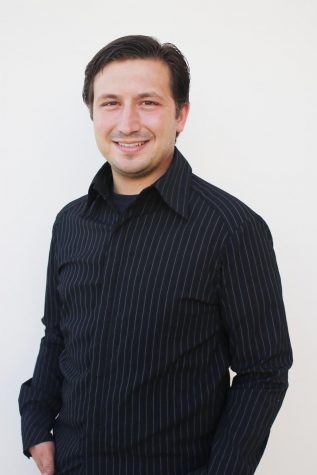A few years ago, my friend’s grandfather passed away. He was born in either the 1920s or early 1930s, fought as an artilleryman in France and was later stationed in Switzerland during World War II. But that was not his dream. As my friend’s mother sorted through her late father’s photo clippings, she discovered he always wanted to be a pilot. During WWII, he repeatedly applied for the Air Force, but was denied every time because he could not pass the eyesight examination. Eventually, he passed the test, was accepted into the Air Force, but was denied becoming a pilot. That is how he came to operate howitzers.
After the war, due to family life and financial struggles, he invested his life savings into gold just before it plummeted. He never had the opportunity to become a pilot.
For many, this is the life we all dread—to have our one dream always in sight but never reachable. Despite many of us fearing that we may end up one day as my friend’s grandfather, allow me to give you three reasons why his life was a life of purpose.
1. DOING WHAT’S RIGHT VERSUS DOING WHAT’S BEST
Two years ago, I was living in Philadelphia with a cohort of other students from across the United States. It was a fellowship opportunity, and we were required to read an exorbitant amount of material—in some cases a book or two a day. During one of our week long sessions, we were required to survey almost every reputable source work on political theory.
A principle that emerged from our studies is that political governance is not always as simple as choosing what is right or avoiding what is wrong, but choosing what is best. In fact, the professor that led this cohort made the suggestion that this is the turning point in everyone’s life. In elementary, middle and high school, our lives constantly revolve around being told what is right and what is wrong, and we are constantly encouraged to think in those terms. However, in college, and many times after college, as we collide with the world, we experience its complexities in a singular way. Our choices are not always as simple as deciding a good over a bad, as we must oftentimes choose between two goods.
Much of our life’s purpose will depend on whether or not we can decide between what is right and what is best. My friend’s grandfather never became a pilot, which was a good, but instead sought to provide for his family and seek out their well-being, which was the best.
2. LIFE’S PURPOSE IS FOUND IN OUR LIFE’S CONTEXT
Another friend of mine was trying to figure out how to make some massive decisions in her life. Her response was that she had to get herself out of the context, to dwell on what it meant from “outside the situation.” However, there is a danger that we almost always fail to grasp—some answers can only be found by remaining in context.
When you ask the question, “What is the purpose of life?” you must inevitably push against the question, “What am I actually doing in life?” We were never given a choice when to appear in this world, but we are given a choice of what we can do with the time we are given. And, if our discernment of our life’s purpose forgets to consider what our life has so far entailed—the experiences we have had, the friends we have made, the struggles we have overcome, the challenges on the horizon—we are nothing more than a man who says on earth, “There is no ‘Up’.”
3. THE PARABLE OF THE GOOD SAMARITAN
We all know the parable of the Good Samaritan. There was a man beaten to an inch of his life and left for dead on the side of the road. The people we would have expected to help this dying man walked on the other side of the road. It was the Good Samaritan, seeing the man stripped naked, who took him into his care and saw that he was taken safely to an inn.
We are all on the road of life. Many of us know our destinations while others are still waiting for a sign on the side of the road. And that, in many ways, is the moral of the Good Samaritan. He did not go over the river and through the woods to find their life purpose or to know what he should do next. His next life choice was laying right on the side of the road—does he hurry on or stop and give a hand?
My friend’s grandfather had a life of purpose not because he had a far-off dream, or a dream that seemed often to hang dangling near him, but that better choices were always closer at hand. He had a family and he had those who needed him. Instead of choosing what was good, he chose what was best. Life’s purpose is learning to make that choice over and over again.












